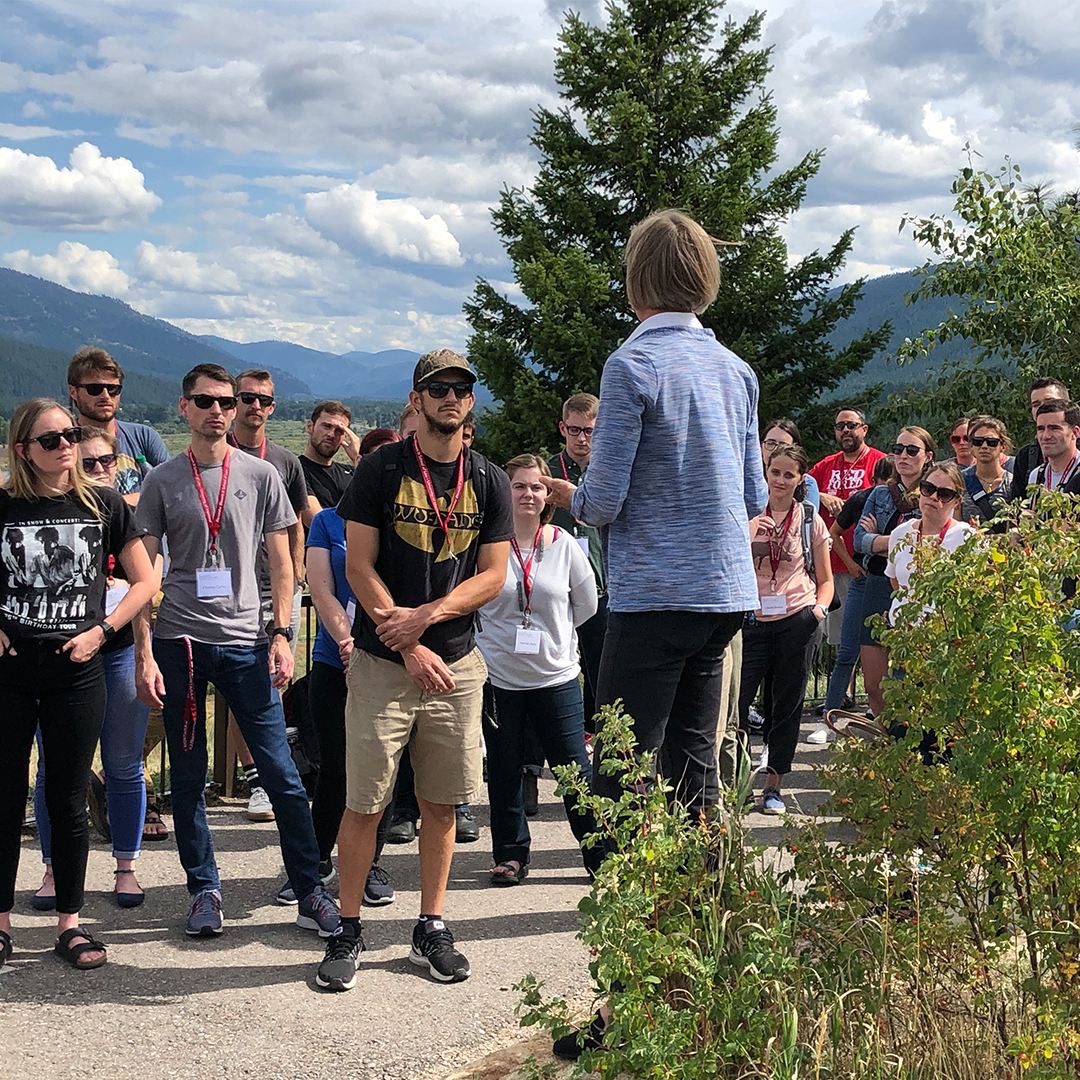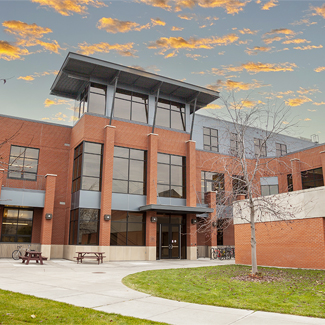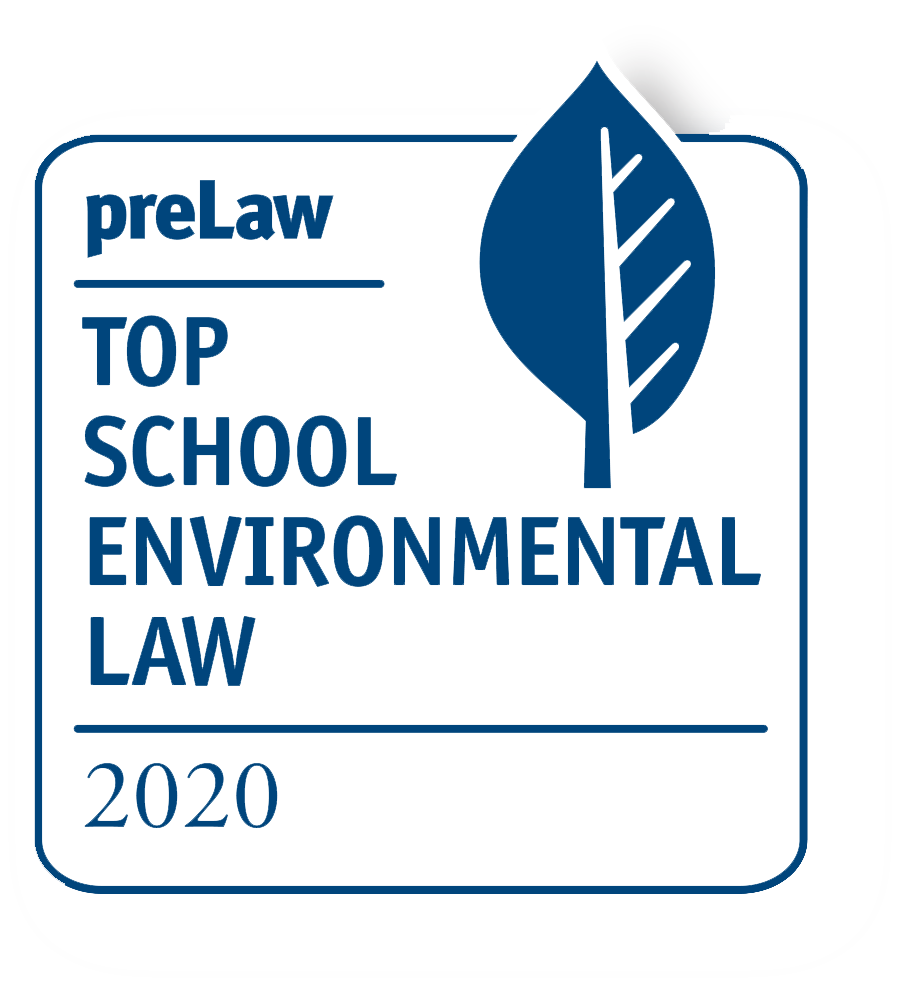Natural Resources and Environmental Law
Video
What Sets Us Apart
Heritage and Mission
Montana has long been an innovator in environmental law. The state’s Constitution provides a fundamental right to a “clean and healthful environment,” and its people both revere and rely upon the lands, waters, and wildlife that make this place home. ABIII models these values in its mission of serving people through an emphasis on natural resources, environmental, and Indian law.
 Place-Based Learning
Place-Based Learning
Our law students learn and recreate in a place that brings natural resource issues to life. In class, students master the intricacies of laws such as the Clean Water Act, the Endangered Species Act, and CERCLA. Outside of class, they observe these laws in action through field trips and field courses that take them to dam restoration projects, public lands used for grazing and logging, watershed protection areas, and tribal cultural sites.
Rich Curricular Offerings and Practice Experience
We have integrated environmental and Indian law issues throughout the 1L curriculum so that students can begin engaging with these topics in their core, required classes. In their 2L and 3L years, students then choose from an array of environmental electives suited to their interests, as well as several extracurricular opportunities such as student groups, law review, and competition teams.
All NREP faculty emphasize both the theory and practice of law so that students feel confident in their skills on the first day they begin their careers. Our optional Natural Resources & Environmental Law Certificate and Indian Law Certificate further deepen students’ skillsets. And in our third-year capstone clinics, students work alongside experienced supervising attorneys on actual environmental issues such as bison reintroduction, instream flow for fisheries, conservation easements, or forest planning. With several clinics to choose from, students can focus on litigation or transactional matters in a variety of non-profit, state, federal, or tribal settings.
Interdisciplinary Approach
As a campus community, we recognize that natural resources issues can only be solved when many disciplines work together. Law students can take advantage of numerous cross-campus graduate courses, such as those in Forestry & Conservation, Environmental Studies, Wildlife Biology, and Public Administration, to name a few. They can also take their interdisciplinary focus to a higher level with a joint degree (JD-EVST or JD-MPA) or Natural Resource Conflict Resolution Certificate. With so many paths of interdisciplinary study, each student can have a law experience tailored made to his or her particular interests and career goals.
Faculty and Classes
Our NREP faculty members have substantial and diverse practice experience in natural resources, environmental, and Indian law, coming from careers in the public, private, non-profit, and tribal sectors. We help our students apply legal principles to the real world around us and examine issues from a variety of perspectives.
| Faculty | Classes |
|---|---|
| Professor Michelle Bryan | Environmental Law, International Environmental Law, Water Law, Land Use Law, Law of People and Place Field Course |
| Professor Samuel Panarella | Climate Change and Renewable Energy Law |
| Professor Kekek Stark | Native American Natural Resources, Summer Indian Law Program |
| Professor Sandi Zellmer | Public Lands Law, Wildlife Law, Environmental Practice, Natural Resources Clinics |
| Adjunct Professor Judge Steve Brown | Natural Resources and Energy Law, Oil and Gas Law |
| Adjunct Professor Shawn Johnson | Natural Resources Conflict Resolution |
Certificate Program
Our Natural Resources and Environmental Law Certificate and Indian Law Certificate are designed for law students who wish to graduate with a law school credential recognizing their concentration and accomplishment in either or both of these two fields. These certificates take students through the most essential foundational and practical skills they will need, from seminar course selection, to advanced writing projects, to clinical placement.
Outside of the law school curriculum, students also have the option of seeking a Certificate in Natural Resources Conflict Resolution, which is an interdisciplinary program that includes students from a variety of graduate programs on campus.
- Administrative Law
- Introduction to Environmental Law
- Public Lands and Resources Law
- Land Use & the Environment
- Environmental Law Research
- Natural Resources & Energy Development
- Water Law
- American Indian Natural Resources Law
- Wildlife Law
- Climate Change and Renewable Energy Law
- Oil and Gas
- Environmental Moot Court
- Summer Offerings:
- Indigenous Cultural Preservation
- American Indian Natural Resource Law
- China Comparative Environmental & Renewable Energy Law
- Department of Natural Resources Conservation Clinic
- Land Use & Natural Resources Clinic
- Rocky Mountain Elk Foundation Clinic
- U.S. Department of Agriculture (USFS) Clinic
Extracurricular Opportunities
Our students have numerous opportunities to deepen their learning outside the traditional classroom, beginning with two of the school’s largest and most active student groups: the Environmental Law Group (ELG) and the Native American Law Student Association (NALSA), both which each engage in service work and host law school programs.
Students also have an opportunity to seek membership on the Public Land and Resources Law Review (PLRLR), one of the nation's oldest law reviews dedicated to natural resources, public lands, and Indian law topics. The PLRLR hosts the distinguished Public Land Law Conference and the Jestrab Lecture on Water.
The school also competes in the National Environmental Law Moot Court Competition held in New York each year.
Career Development and Financial Support
Because we are a small community, students work closely with program faculty during their three years of law school and build relationships that continue long after graduation. We emphasize helping students find practical experiences during law school that position them well for post-graduation job placement. Among those experiences are summer internships like the student-in-residence at the Flathead Lake Biological Station, where students engage in law and policy work while learning about the role of science in the law. Past student interns have worked for state and federal agencies, the Montana Water Court, and nonprofits like Earth Justice, Montana Trout Unlimited, and the Natural Resources Defense Council. Students also work as research assistants to our program faculty as they engage in scholarship.
For students who distinguish themselves in natural resources and environmental law, we offer specialized scholarships such as the prestigious Wyss Scholars Award, the Lee Metcalf Award, the Cremer Award for Best Paper, and the Al Stone Scholarship in Environmental Law. Our membership in the Rocky Mountain Mineral Law Foundation also allows our students to apply for scholarships and travel stipends to attend RMMLF programs.
Newsletter
View the NREP Spring 2019 Newsletter here.
View the NREP Spring 2018 Newsletter here.
View the NREP Spring 2017 Newsletter Here.
If you would like to receive information on upcoming CLEs and recent news in the area of natural resources and environmental law, please fill out and submit the following form.

